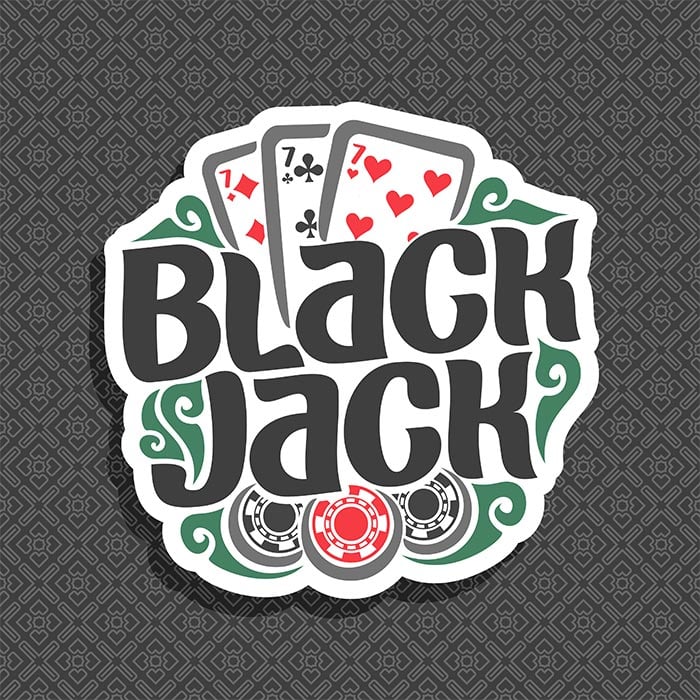Yes, you should (almost) always double down on 11 in blackjack. In short, if the dealer has to take another card on soft 17; you should definitely double down on 11. And if they stand on 17, just avoid doubling down vs an ace. To clarify:
- Dealer’s Upcard is 2 through 10: Yes, double down on 11 when the dealer shows any card from 2 through 10. The rationale is that you have a good chance of getting a total of 21 (or close to it) with one more card, and the dealer has a relatively higher chance of busting or ending with a lower total.
- Dealer’s Upcard is an Ace: Yes, double down, unless you’re playing with 4 or more decks (which you usually are) and the dealer stands on soft 17. In this situation, mathematically, the odds have just swayed against you, and you should simply hit.
Why Double Down on 11?
Doubling down on 11 in blackjack is a popular strategy because it maximizes your potential profit in a situation where you have a strong likelihood of finishing with a high hand total. Here’s why:
1. Strong Starting Point: With an initial total of 11, you have a good chance of getting a strong final hand by drawing just one more card. The best scenario is drawing a 10-value card (10, Jack, Queen, King), which would give you a total of 21.
2. High Probability of a 10-Value Card: In a standard deck of cards, there are more 10-value cards than any other (16 out of 52 cards). This means you have a statistically high chance of hitting a 20 or 21 when you double down on 11.
3. Maximizing Potential Profit: Doubling down allows you to increase your bet (up to double your initial wager) in a favorable situation. When your chances of winning the hand are good, as is the case with an 11, you have the opportunity to capitalize on this advantage and potentially increase your winnings.
4. Dealer’s Upcard Consideration: The decision to double down on 11 also depends on the dealer’s upcard (see above!). It’s generally most advantageous to double down on 11 when the dealer shows a lower upcard (2 through 10). If the dealer shows a weak upcard, there’s a higher chance the dealer will bust, making it more likely for your hand to win.
5. Game Rules Variations: The specific rules of the blackjack game you’re playing can influence this decision. For example, if the dealer must stand on all 17s, it adds to the advantage of doubling down on 11.
How to Play a Multi-Card 11
It is possible to create an 11-value hand with more than three cards. For instance, if your hole cards were 4-2, you could create an 11 by drawing a 5 when you hit. Unfortunately, you cannot double down on a multi-card 11 (once you have drawn the 3rd card). Your best move, according to the basic blackjack strategy, should, of course, be to hit.
When else should you Double Down?
Basic blackjack strategy has been impeccably mapped through statistical probability. It will show you precisely when it is optimal to double down in the long run.
Aside from an 11, here are three more circumstances when you will benefit from doubling down:
– When You Hold Hard 9 vs. Dealer’s 2-6 (Low Cards)
You should always double down (if the blackjack game allows) on a hard 9 when the dealer’s up-card is low, meaning lower than 7 (2 through 6). It has to be a hard nine, which means you created the hand without an ace. Typical examples are 4-5, 306, and 2-7.
If you hold a soft 9 (Ace-8), your best bet is standing instead of doubling down or hitting. Do so no matter the dealer’s up-card.
– When You Hold a Soft 16-18 vs. Dealer’s 2-6 (Low Cards)
If your hand is a soft 16 through 18 (Ace-5, Ace-6, or Ace-7), you should double down if the dealer’s up-card is low. If you hold an ace and a low card, you’d be better off hitting against the dealer’s low cards. It is one of the best known bets at online casinos, especially if the dealer is showing the lowest card.
– When Holding a Hard 10 vs. Dealer’s ten or Lower
A hard 10 should be played like a hard 11. You should always double down when the dealer is showing a lower up-card. More specifically, if the dealer has an up-card lower than 10, you should take advantage of your upper hand to double down.
You have a very low chance of busting in all these three circumstances. Instead, you are in a stronger position to hit a high hand, and the dealer is likely to bow out.
Can I double down after hitting 11?
No. In nearly all cases, you won’t be able to double down after hitting. The same is true of a hard 11. You won’t be able to double down after hitting. That is because casinos know that doubling down after hitting would give you a too much of an advantage and offset the house edge.
Do you double down on 11 against a 10?
Yes, you should always double down on 11 against any dealer’s lower card, including 10.
Do you double down 11 vs. 2?
Yes yes yes. Almost always double down when your first two cards total 11. The exception might be if the dealer shows an Ace. As detailed above!
Do you double down on 11 against a 9?
Yeeeeeessssss.
Should I split 9s against a 5?
Yes, you should split a pair of 9s versus the dealer’s 5. In fact, you should always split 9s if the dealer shows any numeric card except for a 7 and up. It’s all in blackjack’s basic strategy.

